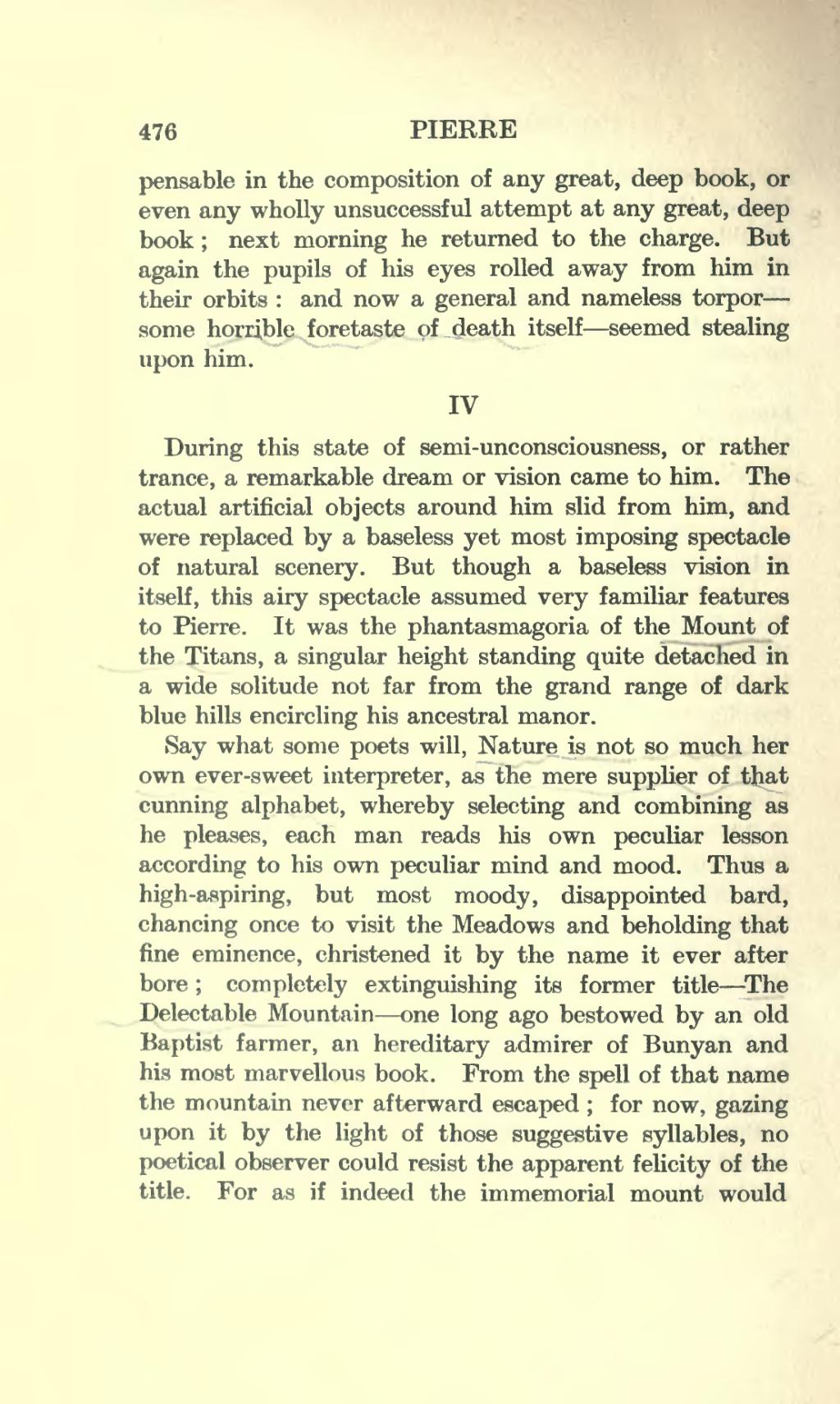pensable in the composition of any great, deep book, or even any wholly unsuccessful attempt at any great, deep book; next morning he returned to the charge. But again the pupils of his eyes rolled away from him in their orbits: and now a general and nameless torpor—some horrible foretaste of death itself—seemed stealing upon him.
IV
During this state of semi-unconsciousness, or rather trance, a remarkable dream or vision came to him. The actual artificial objects around him slid from him, and were replaced by a baseless yet most imposing spectacle of natural scenery. But though a baseless vision in itself, this airy spectacle assumed very familiar features to Pierre. It was the phantasmagoria of the Mount of the Titans, a singular height standing quite detached in a wide solitude not far from the grand range of dark blue hills encircling his ancestral manor.
Say what some poets will, Nature is not so much her own ever-sweet interpreter, as the mere supplier of that cunning alphabet, whereby selecting and combining as he pleases, each man reads his own peculiar lesson according to his own peculiar mind and mood. Thus a high-aspiring, but most moody, disappointed bard, chancing once to visit the Meadows and beholding that fine eminence, christened it by the name it ever after bore; completely extinguishing its former title—The Delectable Mountain—one long ago bestowed by an old Baptist farmer, an hereditary admirer of Bunyan and his most marvellous book. From the spell of that name the mountain never afterward escaped; for now, gazing upon it by the light of those suggestive syllables, no poetical observer could resist the apparent felicity of the title. For as if indeed the immemorial mount would
